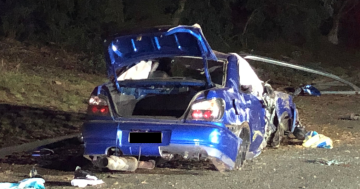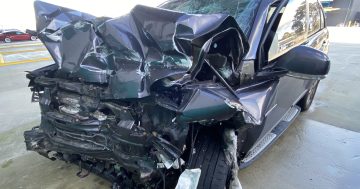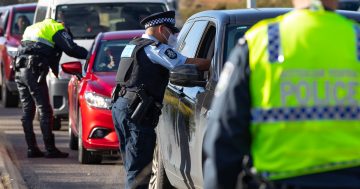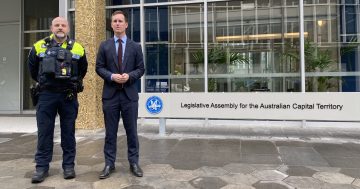
Matthew McLuckie with his father Tom, who has campaigned tirelessly for change in the wake of his son’s death last year. Photo: ACT Policing.
Dangerous driving sentences should be reviewed and a charge of ‘vehicular manslaughter’ introduced with a penalty in line with current manslaughter sentences, a Legislative Assembly committee has recommended.
The Standing Committee on Justice and Community Safety has handed down a report of its inquiry into dangerous driving, which was prompted by community shock at several horror road accidents, alarm at an increase in dangerous driving and a perception that courts have been too soft on dangerous drivers, many of them repeat offenders.
The multi-party committee (chair Peter Cain, deputy chair Dr Marisa Paterson and Andrew Braddock) looked at the criminal justice and police response, the current penalties, trauma and support services, effectiveness of rehabilitation and driver re-education, and preventative measures.
It heard from the families of victims, police, lawyers, the DPP, government, support services, residents and road safety experts.
But the most powerful evidence was from victims and families, including Tom McLuckie, whose son Matthew was killed by a speeding driver who was on the wrong side of the road on 19 May last year.
Mr McLuckie launched three petitions aimed at judicial appointments and performance, overhauling sentencing and addressing the issue of repeat offenders.
The committee made 28 recommendations calling for changes to sentencing, bail and parole conditions, new penalties, greater police powers, better driver education and a new trauma service for victims and families.
While police, their union, and the families of victims generally believed the legal system was too lenient on offenders, the government, the DPP and justice groups thought it was working well, highlighting the complexity of cases that come before the court.
The committee urged the government to review dangerous driving sentences to see if they were becoming lighter, as well as whether sentence discounts were too generous in the case of serious crimes and repeat offenders, including taking the impact on victims into account.
It said this was based on concerns that past sentences substantially below the maximum are being used as precedents, coupled with concerns that dangerous driving was increasing in the ACT.
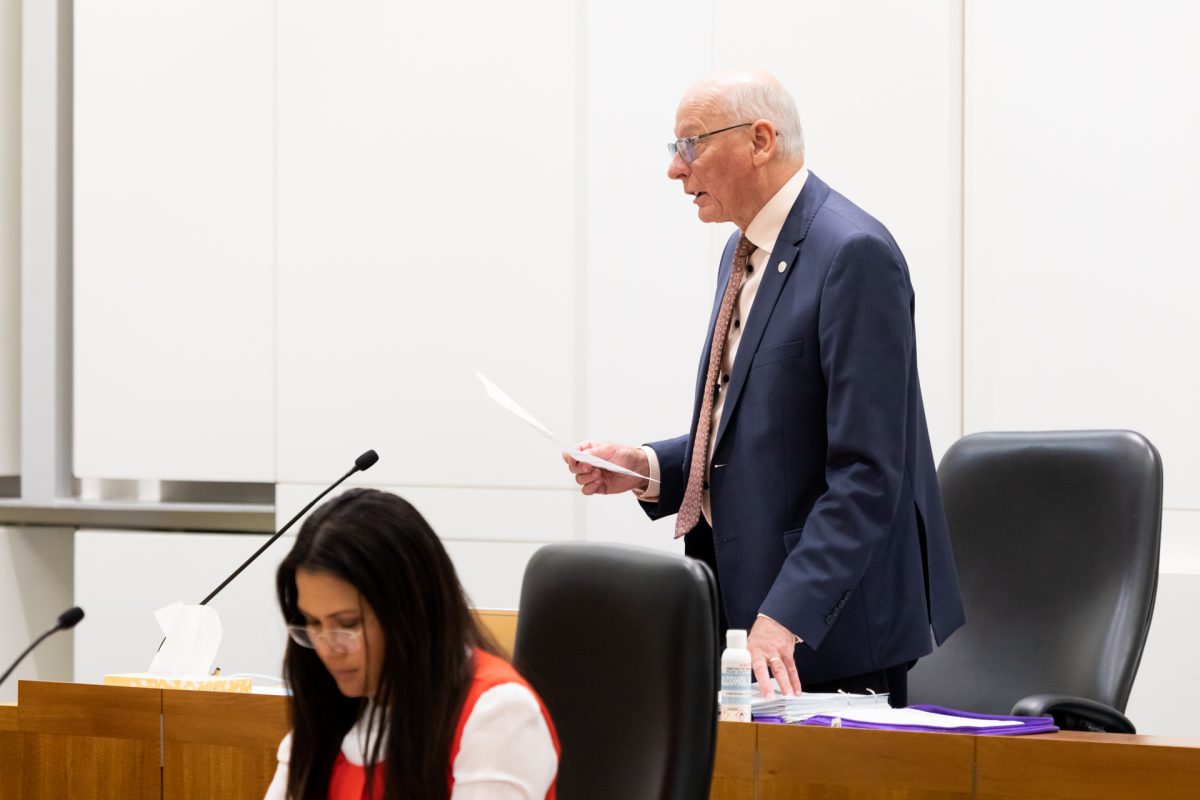
Committee chair Peter Cain thanked parents for their courage and insight. Photo: Michelle Kroll.
The committee said the offence of ‘culpable driving causing death’ should be changed to ‘vehicular manslaughter’.
It also recommended the government consider increasing the penalty from a maximum 14 years or 16 years for an aggravated offence to 20 years or 28 for an aggravated offence, in line with the existing penalty for manslaughter.
“The committee considers that culpable driving causing death is effectively the same thing as manslaughter,” it said.
“The name of the offence should be then changed to ‘vehicular manslaughter’ to better reflect what it is.”
It also believed passengers, not just drivers, should face penalties for leaving the scene of an accident.
In response to concerns that offenders have been out on bail, the committee wants legislation for a neutral presumption of bail for serious dangerous driving offences such as driving at police and serious repeat motor vehicle offenders.
It urged that in relevant cases parole conditions include restrictions on or suspension of driver’s licences, and that the government introduce a high-risk offender scheme in which repeat offenders would have to demonstrate to a court their fitness to drive.
The committee said that at serious accident scenes, police should have the power to confiscate mobile phones on the spot so they can use that information in their investigations.
It called on the government to develop a plan on how to improve driver education and intervention programs on dangerous driving, especially in relation to speeding and drink and/or drug driving.
In response to evidence that victims and families were often left to pick up the pieces on their own, the committee recommended the government urgently fund a trauma service that is available at the scene of an accident and a 24-hour hotline to help victims and their families.
It also urged funding for the Victims of Crime Commission to provide a wrap-around service to support people injured as a result of dangerous driving; and extend support for victims of ‘negligent driving’.
Committee chair Peter Cain MLA said the evidence showed that dangerous driving in the ACT was a serious concern and could have devastating consequences.
“The committee appreciates in particular evidence provided from parents of victims who have died in road accidents and thanks them for their courage and insights into possible ways to prevent dangerous driving, help police with their enquiries and improvements in assistance for victims,” he said.
The government has four months to respond to the committee’s recommendations.












